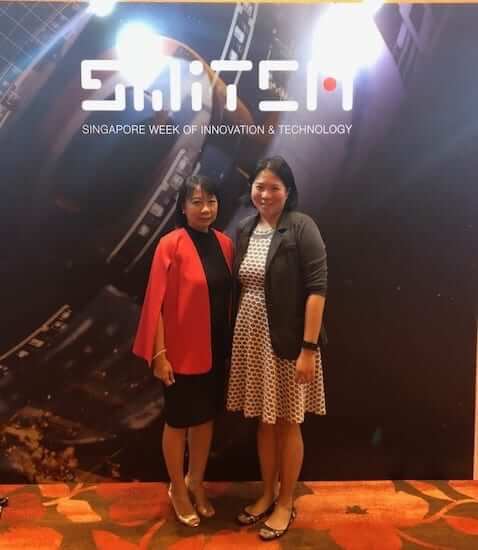I met Shiyan Koh at the Women in Tech Singapore 2018. Koh was the VP of business operations and corporate development at personal finance company NerdWallet. She formerly worked as an investment professional at Bridgewater Associates and Institutional Venture Partners. She is now at Hustle Fund; a pre-seed firm founded by former 500 Startups partners Elizabeth Yin and Eric Bahn. It has closed their first fund, coming in at the tune of $11.5 million.
At Hustle Fund, Koh will be based in Singapore to focus on expanding the firm’s reach in Southeast Asia.
How or why did you start Hustle Fund?
Hustle Fund is founded by my two partners, Eric and Elizabeth. The three of us have actually been friends since our freshmen year of college. So, we’ve known each other for almost twenty years. Our lives have intersected along the way because we are all in the Valley. Eric and Elizabeth started and sold businesses.
I was an early employee in a financial services business called NerdWallet. When I joined, it was under a million in revenue, when I left in March of this year – hundred and fifty million in revenue plus growing profitably. It went from ten employees to four hundred employees. I got to see that whole picture. And we along the way have been investing our own money.
So, when Eric and Elizabeth sold their businesses in 2012 and 2014, they started doing angel investing. I’ve been angel investing for a few years. On top of that, Elizabeth actually ran the 500 start-ups Accelerator in Mountain View for almost three years. And so, through these shared experiences, Elizabeth’s insight was like when you look at the early stage of investing, there is not a lot of data. No one’s running a Discounted Cash Flow model or anything. You’re really trying to evaluate the team in the market. And in terms of a team perspective, like what data do you have? She had seen so many companies come through the 500 start-ups pipeline and Accelerator, so her question was “What qualities correlate with ultimate survival and success?”
Before Elizabeth and Eric first made the investments, they sort of stack-ranked the businesses. Then they coached them week by week. Every week, the coaches will then re-rank the businesses.You can really see the difference between what you have thought before you met them and then along the way.
The insight there was really unsurprising. Teams that were able to execute with pace, with hustle were ultimately more successful with higher survival rates. This is because as a start-up, you have a very limited runway of time and/or cash. So the process question would now be “How much progress can you make with the runway you have?” and which team “can prioritize effectively?” In startups, there’s always a hundred things to do. The question would be which “One of two things that you actually need to do that’ll make your business advance?” and “How quickly can you validate or invalidate hypotheses about the market that you’re trying to attack?”
What is the Hustle Fund edge?
We decided to design an investment process that allowed us to see this hypothesis through. We write a very quick first cheque – 25K. We work with founders for four to six weeks on a growth project where we coached them for an hour a week. And then at the end of that, we decide or not we want to put in a bigger cheque. That’s how we can assess the hustle.
You can’t see that in any pitch or presentation which is what most startups experience of venture money. However, if you are a small business you are probably familiar with the idea of like you hire someone on contract first, see how they do and then you make the full-time offer. Basically, try before you buy.
How successful has this hypothesis been?
In the twelve months since the funds have launched, we’ve written 41 first cheques and seven follow-on cheques. We just had our first pre-seed company and raised a series A. So, we think the model is working.
So like in our name, we like to fund people who are really executing with urgency and are addressing big markets. A feature of the venture capital asset class is that you really have to believe this business can 10X your money. While there are many businesses in the world that are great businesses, they are not 10X.
This doesn’t mean that they are not worthy enterprises and that doesn’t mean that you shouldn’t pursue them. It just means you probably don’t want to venture capital as investors. Because that’s kind of the profile of what their LPs are signed up for and not what their GPs are looking for. But if you do want investment and are a hustler, apply here – [email protected]. We receive thousands of submissions and we review all of them. We have done 41 deals so far. Three were cold off the website and the rest were referred in that someone we know shot an email. We have a pretty wide net of referrals like our LPs, people we’ve worked with before, and even our past professors. Yeah, we’ve just been in the Valley for a long time.
What would be your difference as a VC?
Definitely, that all three of us are all operators. Three of us have been at that beginning stage where you, the entrepreneur, has nothing. For example, Eric ran a business called “Beat the GMAT” and that was basically a large Educational Tech community for GMAT test-takers. The problem with community-driven businesses is that you need to feel like other people are in the community, otherwise you’ll be like “why am I in this ghost town”. So Eric set up an alarm which was that every time somebody asked a question in the community, if they didn’t get an answer within an hour, it would call his phone and he would answer it. Later he had community members all over the world. But imagine for like two years, he was just waking up in the middle of the night to type answers. And so, I think that perspective and that struggle is something that enhances us as the Hustle-able VCs. We’ve lived through all that. It’s not a hypothetical thing.
So not your usual “number crunching Venture MBA person”
Yeah! And we’ve lived through a lot of that. I built a financial advisor Q&A product, I sold my first 15 advisors off on a powerpoint slide presentation. There was no product built yet. I drove around the Bay area with a freelance videographer and I said “Hey! Do you want a professionally-shot video for your website? In exchange, please join my marketplace of financial advisors.”
Bootlegging, I love it!
Yeah! You’ve just got to do it, right? I think if you want to work with investors who’ve been in the trenches and done that work, I think Hustle is a great partner for you. You know, a big part of what we talk about like… Eric, Elizabeth and I… we’ve known each other a long time. We say that we want this to be our last job. Which means we want to think about how do you build an asset management business that lasts for the long run.
With a lot of venture funds, you’ll see, they’ll last for once they have partners but then the succession is very challenging. We really believe that anybody can start a business anywhere in the world now. It is so cheap to start businesses. Yet, the bulk of the funding is given is in a few specific geographies and to a few specific types of people. This means the usual people who are connected and the usual people who have resources. So how can we be some small part of making an ecosystem where anyone who is really doing great work can be seen and can get funded? We actually just wrote a cheque to a team in Ghana.
Tell me more about that. Why them?
I mean… it’s a bit of a bet right? But it is two women who are American by nationality but have connections to Africa through their families, so they’re immigrants. They are building, essentially like the Alibaba of Africa. So, if you remember before Taobao, the first version of Alibaba was actually a B2B. Because Jack Ma was like “well I have all these producers in China but they can’t find overseas customers.” Africa has that same problem. So, they have Shea Cocoa Butter which is very popular in the US as a moisturizer. It’s made in Ghana but buyers have a hard time finding out who are the producers who would supply these.
Or mangoes, in the Middle East, there are many Indian Immigrants who want to eat mangoes. But the mango season in India ends at a certain point. But then it continues in Africa so you could actually have more availability of mangoes if you can do that.
So, you are looking for a strong business model and distribution model that works.
Yeah, if you’re telling me that you’re not going have a live product for five years, we are not the right partner for you. You should really go talk to the government or those research institutes. There’s a right funder for every project.
It is not to say that we won’t invest in Deep Tech. We are investors in a supersonic plane company and we’re investors in the next gen LIDAR business. But we’re investment managers so, we have a portfolio. We don’t have a portfolio 100% that is all Deep Tech.
We have a mix of B2B, we have some Blockchain, we have some health tech and we have some deep tech stuff. And I think it really depends on the market, so, in South East Asia… I said this in a panel at Women in Tech. There are a lot of things to be solved that don’t necessarily need you to build the greatest technology. But it doesn’t mean you can’t build a great tech-enabled business. But at the same time, the flip side is, in Singapore, I actually have seen some companies with some amazing technology that can be global businesses. And I would love to invest in those as well. But the criteria remains the same. “Is this going to be a great business?”
What would you tell women who have to survive a start-up? Maybe she’s not the founder, she’s an employee. Because the start-up life is not gentle to a woman’s life.
It’s not gentle to anyone’s life. I mean, I think what is hard about the start-up life that people might not prepare for? One is ambiguity. No one is going to tell you what to do, you’ve got to figure out what to do every day and prioritize your own time. It can really be disconcerting for some people. But that’s probably like a type of person rather than any gender of a person.
When you try to hire someone who comes from a really structured environment like CPAs or lawyers. You put them in a start-up environment where priorities are shifting and things are changing. They may want to impose process and control. However, since at a startup we many times don’t know what we are doing yet, imposing a process that works is unlikely. So there’s a self-selection issue there.
I think the other thing that is harder about start-ups is that they grow. Ideally, if your start-up is doing well, it’s growing really fast. Which means that the skills that you have from the previous stage don’t necessarily translate to the next stage. It’s painful not just for you, because people don’t like feeling bad at doing something. They want to feel competent. It’s painful for everyone you manage. Because you’re figuring it out and they’re your guinea pigs. And I think, also the realization that something might have scaled past your capabilities is actually also a very painful thing.
And so, when we talk to founders about some of the biggest challenges they faced in real life about people.
Another one is, how do I lay off someone? “Hey, this guy has worked really hard for me for the last two years but we need to bring in a more senior person who’s done this before.” And this guy is like “What do you mean?! I don’t report directly to the CEO anymore?! Who is this random person?” And so, I think that’s one large scaling problem, founders face.
The other is upgrading your management team. Maybe they were great from 0 to 50 but that next leg, they don’t have those capabilities. Or you cannot wait for them to develop those capabilities.
I think people have to get creative about that. Because, everyone’s like “oh talent’s such an issue” I mean, guess what? Talents an issue in the Bay area too. Because you might have more people, but you also have more competition for those people. And so, I actually think that there are no founders in the world that are like “You know what? I don’t need any more engineers, I’m good, thanks! Here, here’s some extra, I’ll give you!” Nobody’s going to say that. Because ultimately, we’re in a human capital business.
I am actually telling people to go and make their own academia material or their own corporate university, like for the graduating classes in educational institutions. Make a special bootcamp, skill them up, throw them in to try them out in the real startup world and then get them out again.
Another time I have noticed a little bit more in Asia than I do in the Bay area necessarily which is I think sometimes people treat engineers and designers like resources. They treat them like “Oh, I wrote this spec, I hand it to you, now build this thing”. Whereas I actually think that you get much better outcomes when they are part of the creation and decision-making process.
Yes, ownership.
And they also can say “Hey this is a wasteful way to build something” or “What is your goal? We can accomplish this in a way”. Because there is a very famous old book called the “Mythical Man-Month” It is about Engineering Management . And it is basically about doubling the number of engineers actually triples the time it takes to get a project done.
(laughs)
Because you’ll be like “how many man-months is this project, let’s estimate it blah blah…” and I think in the building and shipping of software, people can actually be much more thoughtful and creative about how they assemble and manage teams to ship. And it isn’t like a business that has 100 engineers is going to be shipping 2x much products than a business with 50 engineers. Because once you’ve layered those people, you end up with the ratio of people who write code to people who manage people writing code. It just gets kind of outta whack. You get communication losses at every level.
As a CEO, with the first 10 people, you can monitor them. You’ve probably hired them. But once you start delegating hiring responsibility to your directs, you lose that control. And I am not saying “don’t delegate”, I am just saying the way that you manage that is through a very clear and disciplined budgeting mechanism. Because otherwise, what you have is empire building.
Do you believe Women in Tech and Women groups serve a purpose and what is that?
Yeah, in the Bay area, I was part of a FinTech Women’s dinner that met monthly and it was awesome. And entrepreneurs – so founders, operators and investors. And we got together once a month and we all rotated who’s house was going to host. And our fearless leader would set a topic like “This month, we will discuss load servicing” or “This month, we will discuss Insurtech or whatever” . But because we had all those different perspectives, there were really rich conversations. But also people would mix and talk about problems they were having at specific areas and I hope to be able to do something like that in Singapore.
If you’d like to get in touch with Shiyan Koh , please feel free to reach out to her on LinkedIn: https://www.linkedin.com/in/shiyankoh/





























